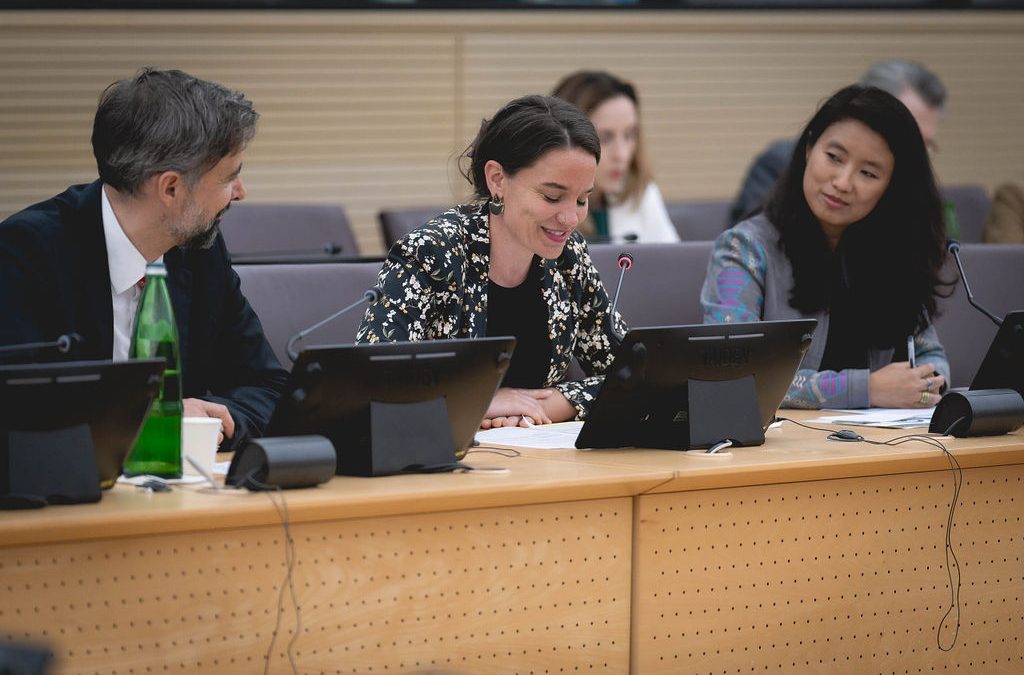In a context of growing hunger and accelerating climate and biodiversity crises, the 300-member Agroecology Coalition today launched an ambitious strategy to rapidly accelerate the transition to sustainable agroecological food systems by 2030.
Agroecology is an essential food system approach to tackle the climate, biodiversity and hunger crises together, and we need it to sustainably feed a growing population and respect nature. We can’t keep avoiding the destruction caused by extensive industrial agriculture.
Bringing together pioneering governments, international agencies, scientific groups and civil society organizations, the Coalition launched its 2024-2030 strategy at an event hosted by the International Fund for Agricultural Development (IFAD).
Through prioritising sustainability and respect for the fundamental role of biodiversity and living soils, agroecology can build healthier ecosystems even while increasing productivity. The Agroecology Coalition is sending a powerful signal today, with its many members joining forces to boost investments, policies, research, and ability to implement a more integrated approach to food systems.
The EU was also represented at the Strategy launch.
I would like to congratulate the Agroecology Coalition for launching its strategy. With agriculture facing major challenges, agro-ecological practices can guide farmers all over the world to manage their land in more sustainable ways and increasing their resilience to biotic and abiotic stresses. The EU, through its policies and funding is supporting the transformation of agri-food systems to benefit producers, consumers and nature alike. The Agroecology Coalition is a partner in this respect and we are looking forward to a continued and strong cooperation in Europe and globally.
The challenges food systems are facing:
Today’s food systems are responsible for one-third of global greenhouse gas emissions and nearly 80% of biodiversity loss. They often rely on chemical-dependent monocultures, making them highly vulnerable to shocks. These practices also contribute to forest destruction, the displacement of communities, water pollution, and soil degradation. Many farmers and food system workers, particularly women, Indigenous Peoples, and youth, have precarious livelihoods. In other words, today’s food systems are exacerbating poverty and social inequalities, and undermining food security and access to healthy, nutritious diets, with hunger still at “serious or alarming in 43 countries” according to the 2023 Global Hunger Index.
The Agroecology Coalition approach:
The new strategy that the Agroecology Coalition has launched set goals towards the acceleration of food systems transformation, among these.
- The Coalition is committing to foster increased investments for agroecology, motivating international agencies, governments, philanthropy, public and private funders and investors to step up, in quantity and quality, investments in agroecology. Today, overall agroecology funding is on the rise and has reached US$44 billion a year. It is estimated however that a tenfold increase in the current investment (i.e. US$400 billion) will be required to create the conditions for agroecology to affect transformation in food systems required to address prevailing global challenges.
- The Coalition will advocate for and amplify supportive policies, seizing opportunities for collective advocacy in international institutions as well as in other global and regional, and national, fora and processes, such as the three Rio Conventions, the UN Food Systems Stock take Moment, and Committee on World Food Security (CFS).
- Fair and equitable access to markets for agroecological farmers and food provisioners remains a challenge and requires mainstreaming, while consumer awareness of agroecology and its multiple benefits is also limited. For agroecology to take hold in food systems, producers and consumers should be better connected. For this the Coalition will support efforts towards developing dynamic local, territorial, national and regional markets and inclusive business models improving the livelihoods and influence of agroecological farmers and food system actors
Senegal has been one of the founding members of the Agroecology Coalition in 2021 and we are proud of what we have achieved together. In Senegal, we took several concrete steps already, but we know that for agroecology to fulfil its bright future, we need to keep advocating jointly in international spaces and inspiring each other: this new strategy will help us. This is crucial as it’s not just about growing food, it’s about nurturing our land, our communities, and our future.
Background:
In 2021, the United Nations Food Systems Summit (UNFSS) underlined the need for urgent actions to transform food systems. The Agroecology Coalition was set up in this context to bring countries and organizations together and step up their efforts to transform food systems through agroecology and simultaneously address multiple crises. Today it brings together around 300 members, including governments and organizations.
Photo credit: DB Immagini

